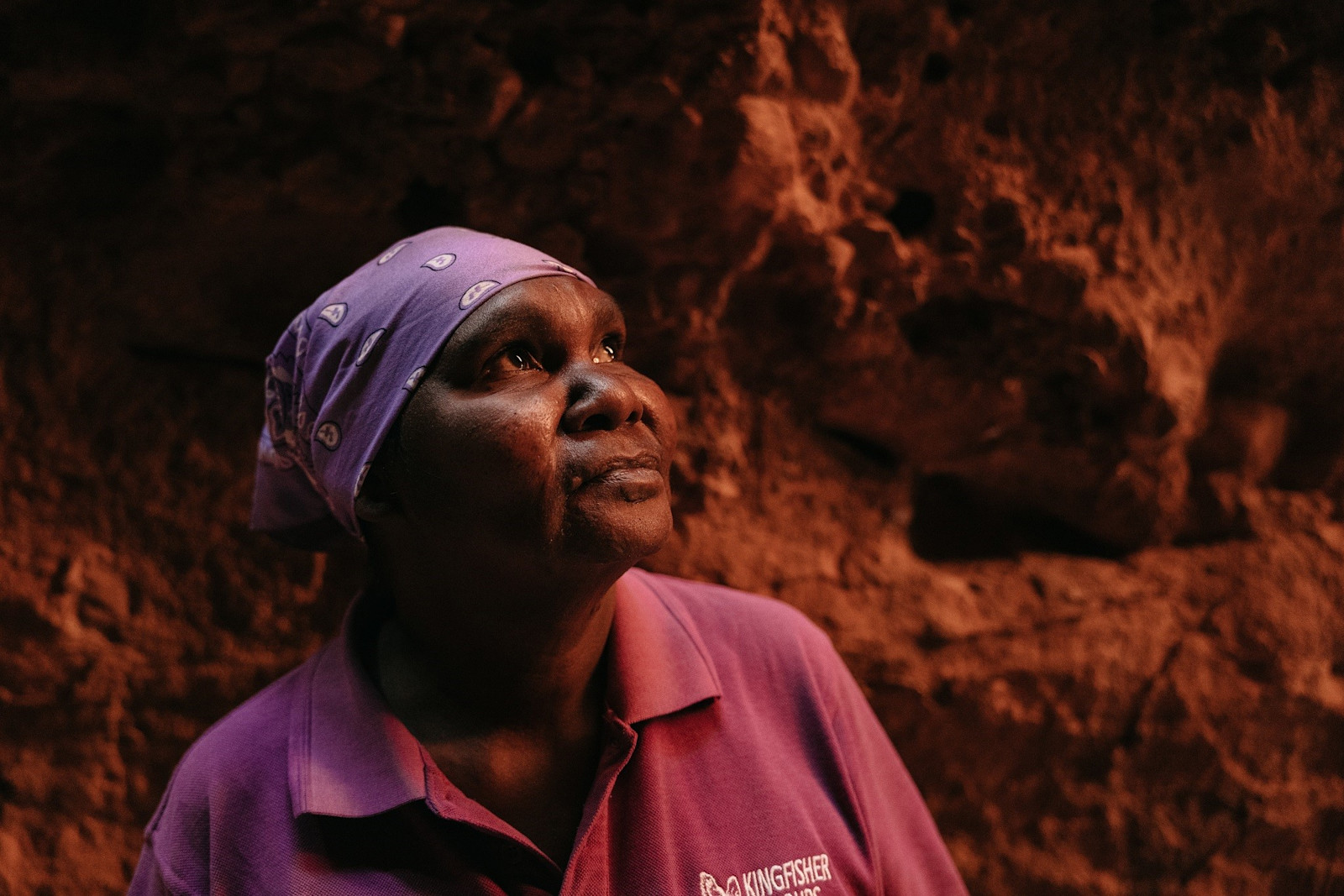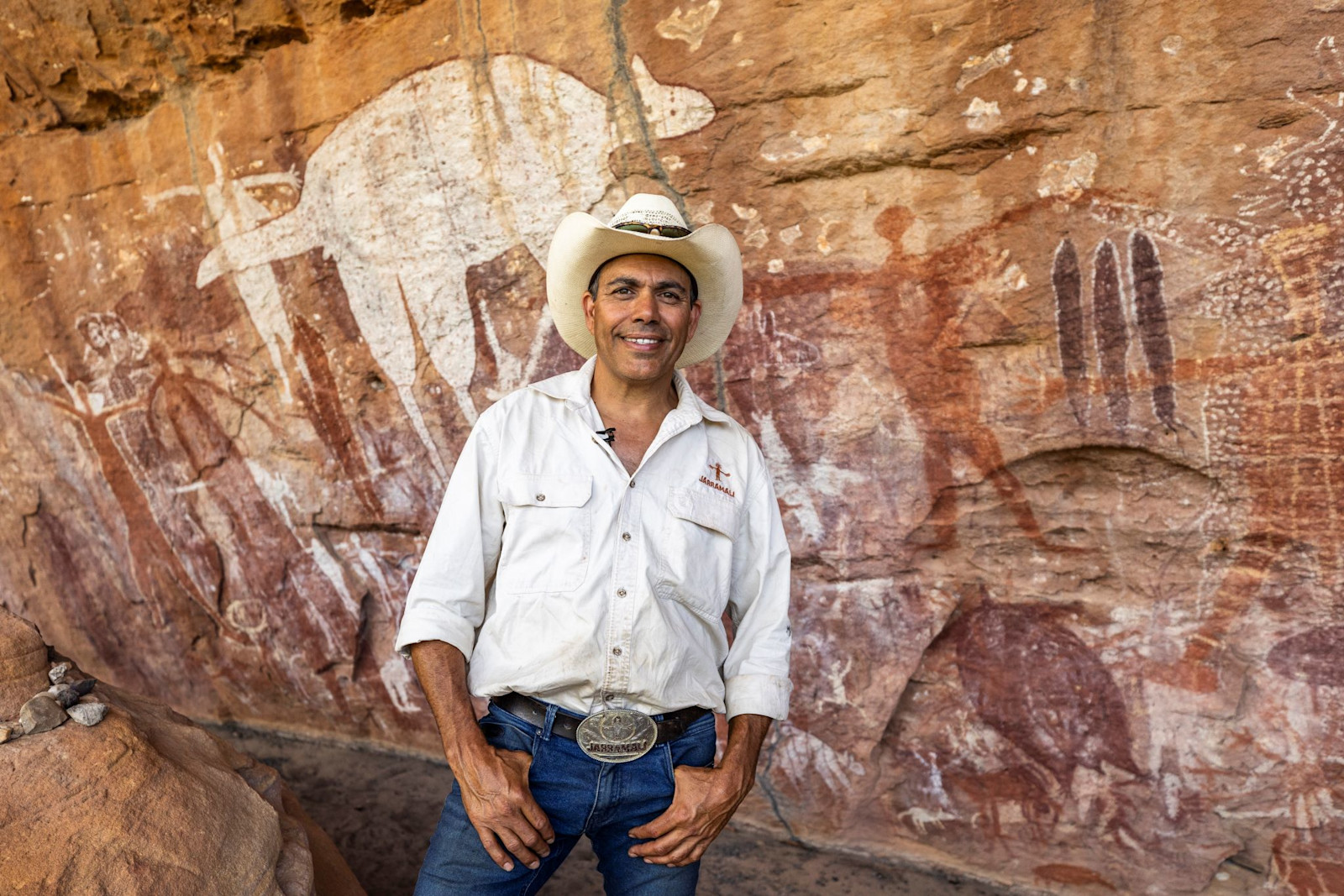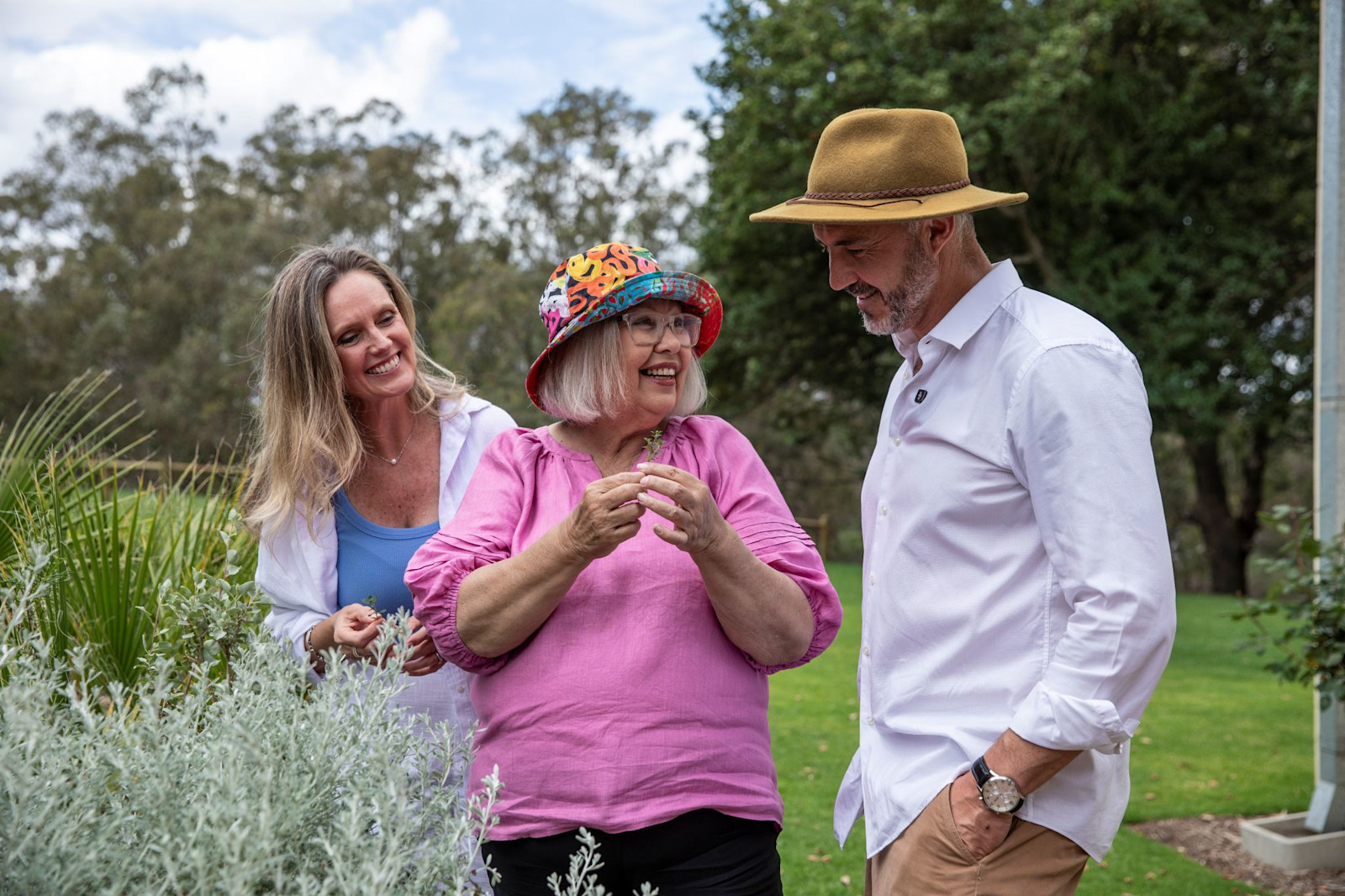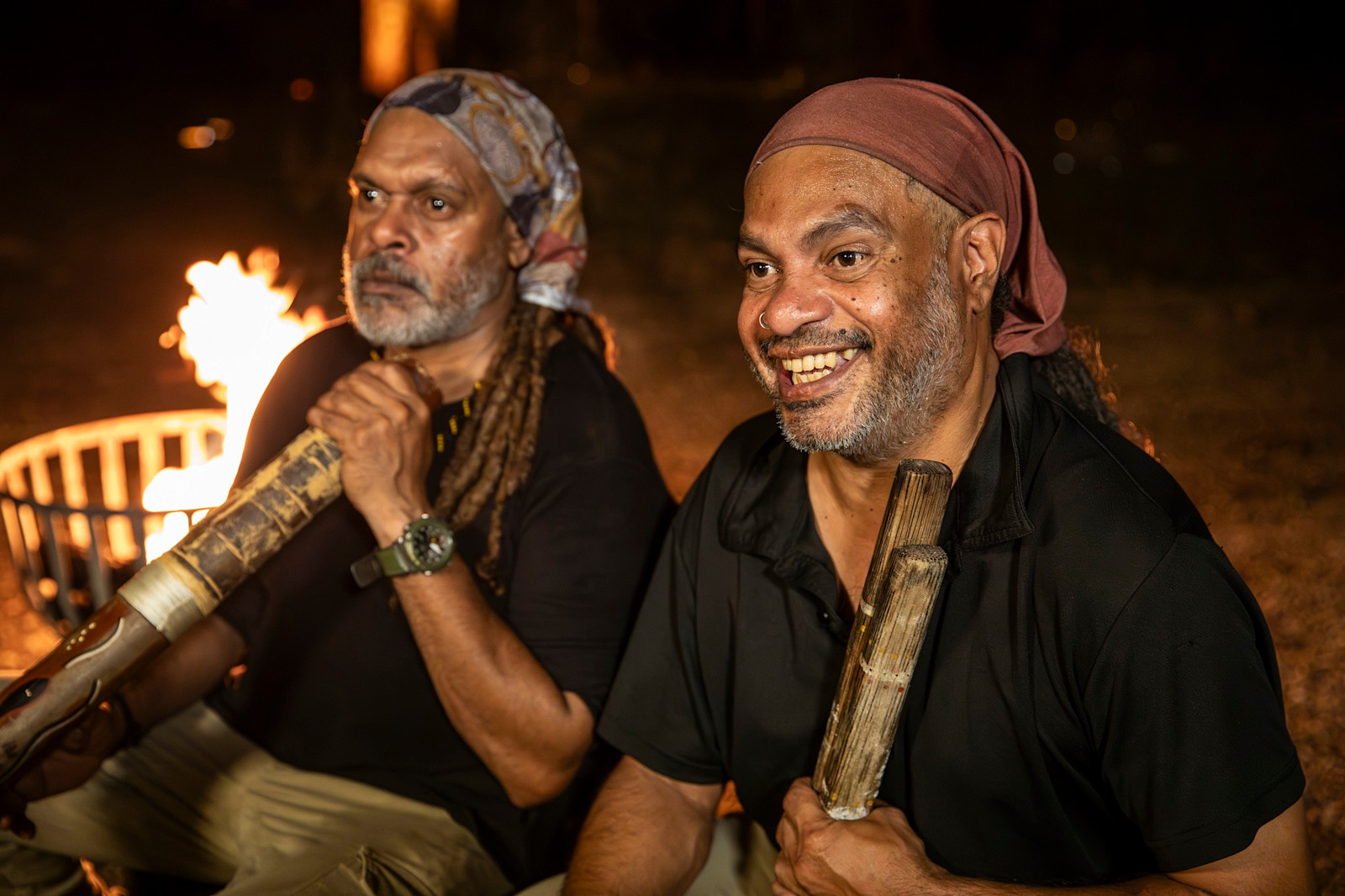Discover Aboriginal Experiences launches 4 member case studies on sustainable tourism for Earth Day 2024
A collective of quality, authentic, Aboriginal-guided tourism offerings, Discover Aboriginal Experiences (DAE) is delighted to launch four case studies on collective members going to extraordinary lengths when it comes to sustainable tourism, whether that relates to protecting the environment, community, culture – or all three.
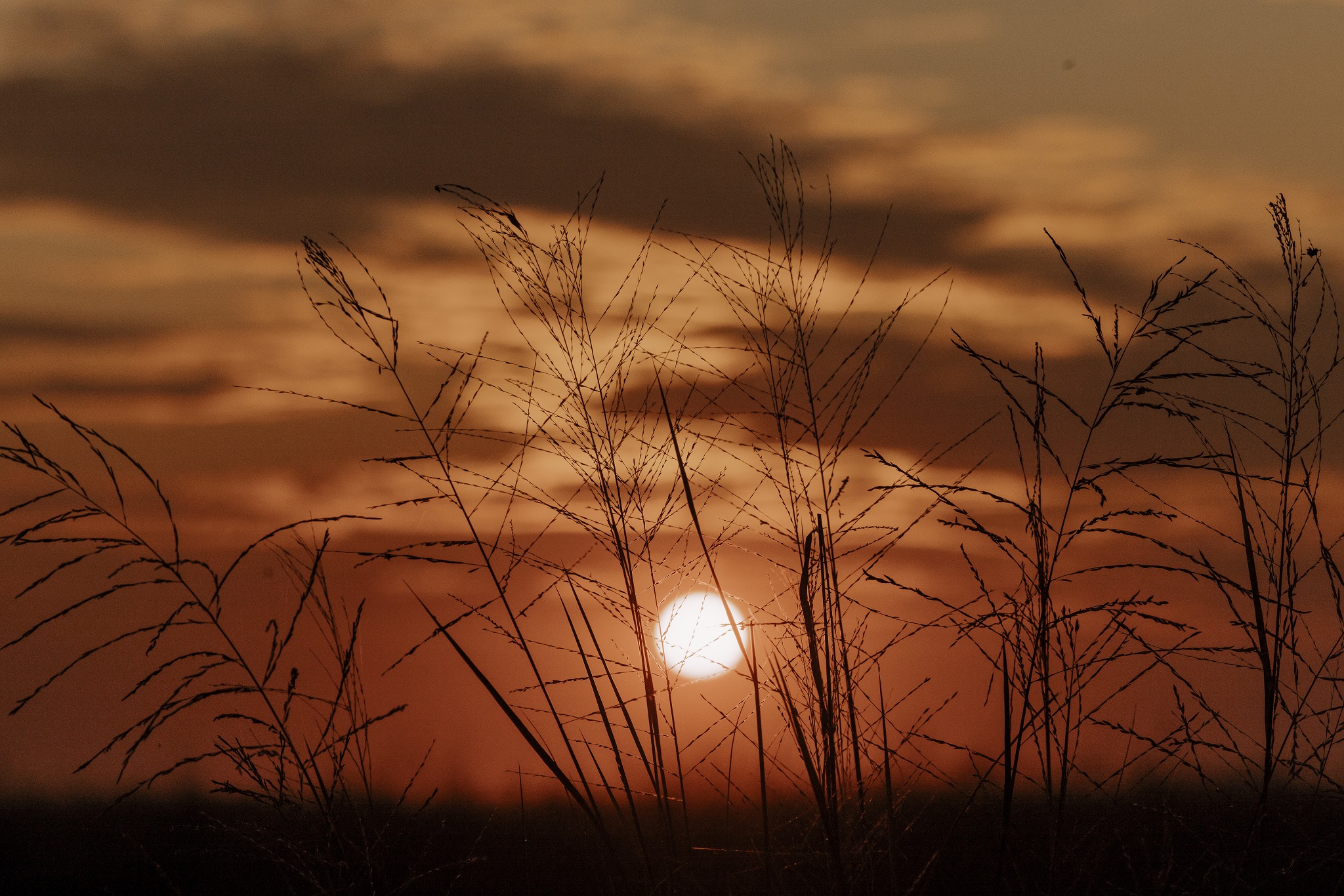
Mabu Buru Tours, Broome, Western Australia
A collective of quality, authentic, Aboriginal-guided tourism offerings, Discover Aboriginal Experiences (DAE) is delighted to launch four case studies on collective members going to extraordinary lengths when it comes to sustainable tourism, whether that relates to protecting the environment, community, culture – or all three.
The launch of the four case studies coincides with upcoming Earth Day 2024, falling on 22 April. The case studies also tap into recent figures published by Statista, which show that more than 80 per cent of global travellers regard sustainable travel as important to them, and that they were willing to adopt sustainable travel incentives –something that has led the global eco-tourism industry to be worth US$172.4 billion.
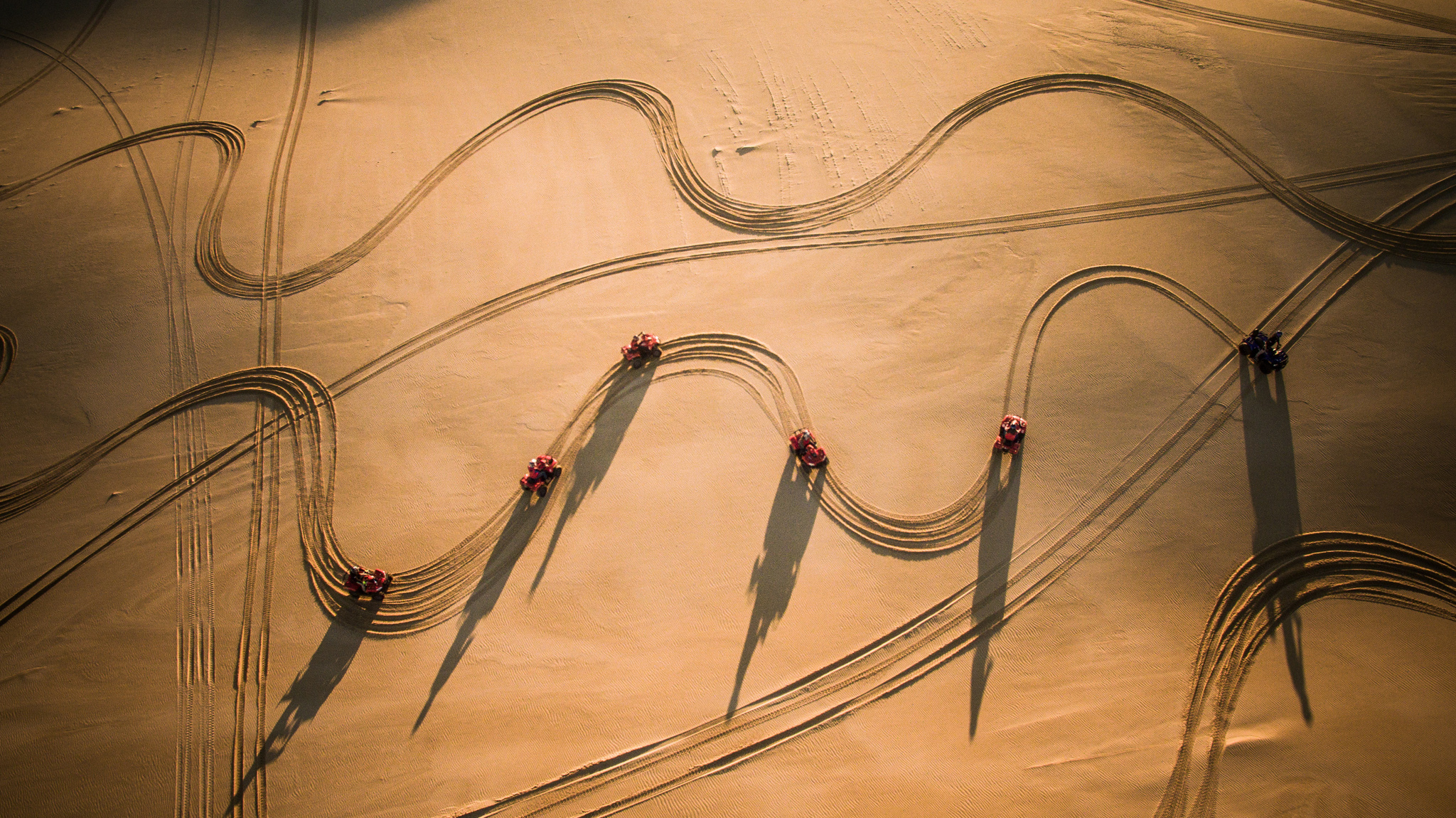
Aerial shot of quad bikes on a Sand Dune Adventures tour, NSW © Tourism Australia
Indeed, the vast majority of experiences offered by members of the DAE collective fall into this category. These four case studies profile Mabu Buru Tours in Western Australia; Sand Dune Adventures in New South Wales; Wajaana Yaam in New South Wales; and Maruku Arts in the Northern Territory. The case studies are detailed below.
Australia’s Aboriginal and Torres Strait Islander peoples don’t see a piece of land as something to fence off and own. Nor do they look at the bush as a place to extract as many resources as possible. They don’t regard waterways as reservoirs to feed mass plantations. Instead, they see themselves and the land as one.
The world’s oldest living cultures have been embracing sustainability long before it became fashionable to lower food miles and use plant-based plastics. For at least 65,000 years they have lived in harmony with the environment, adhering to a reciprocal relationship that honours, rather than exploits the land. The Earth is their mother, a force that enables their existence in return for care and respect.
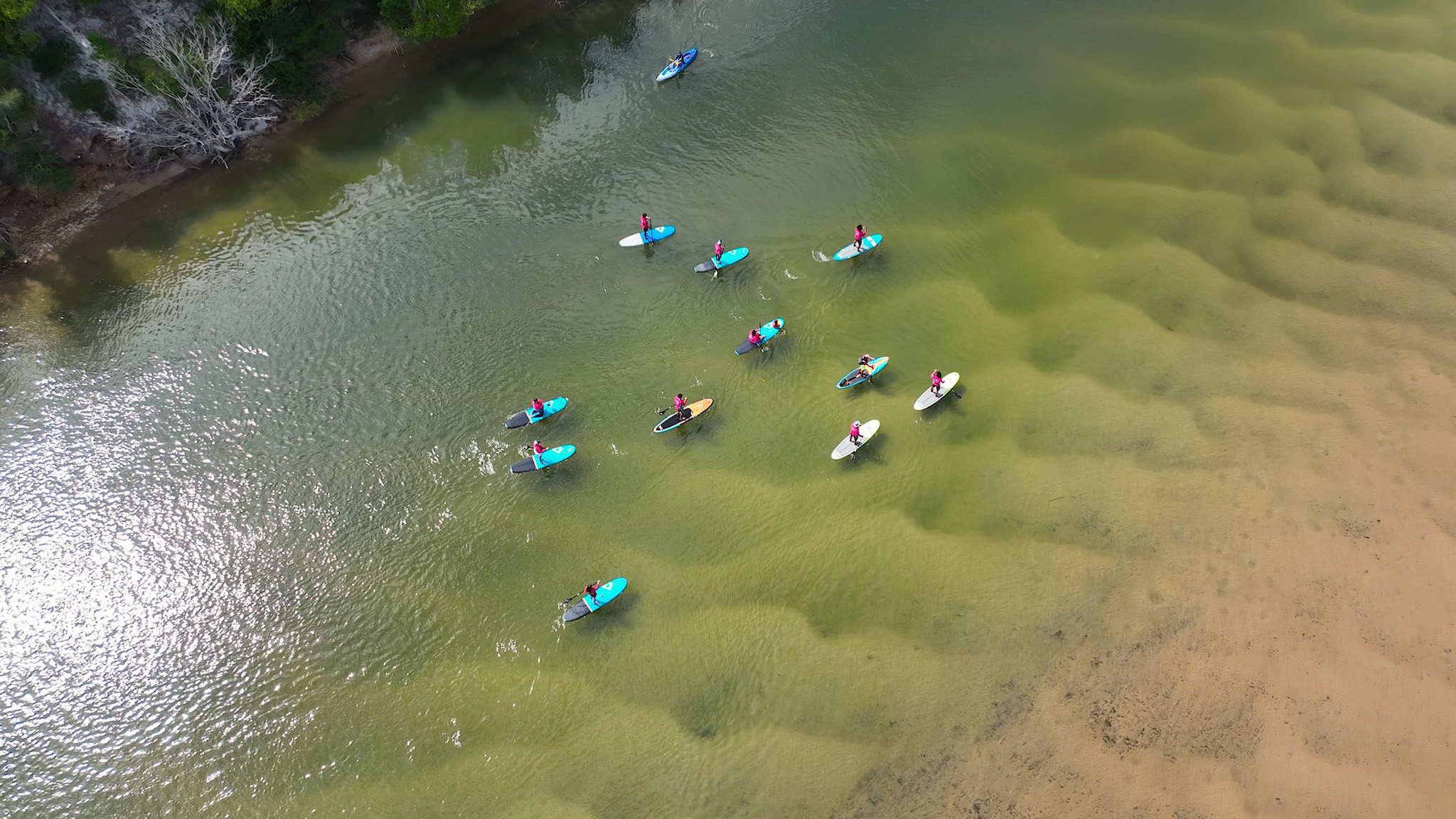
Aerial shot of stand-up paddleboarders on a Wajaana Yaam Gumbaynggirr Adventure Tours experience, NSW © Tourism Australia
“The Indigenous connection to Country is fundamental across the DAE collective, as is sharing of culture through tourism, fostering a thriving living culture and economic and physical wellbeing of communities, and telling uniquely Australian Stories,” says Nicole Mitchell, Executive Officer Discover Aboriginal Experiences. “We’re delighted to spotlight four of our members who stand out in these fields. There are so many others – and we will develop our portfolio of case studies in the coming months. We hope this inspires guests and journalists to rethink and recognise the immense positive impact that the growing demand for Aboriginal tourism is having.”
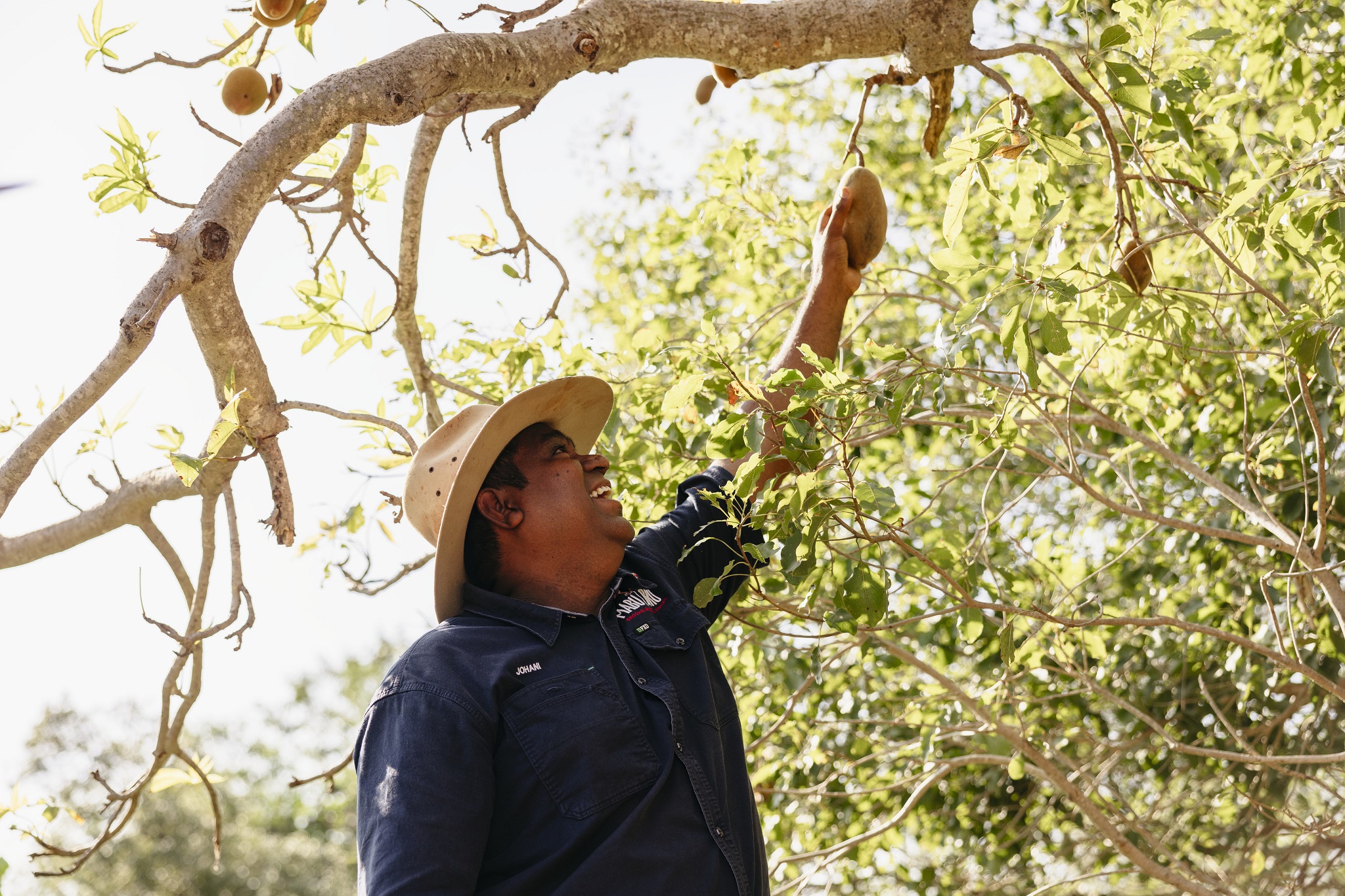
Johani Mamid, Mabu Buru Tours © Tourism Australia
Case study 1: Mabu Buru Tours, Kimberley, Western Australia
Mabu Buru Tours is the brainchild of Johani Mamid, a proud Indigenous man born and raised in Broome in the Kimberley region of Western Australia. His guided experiences take guests on a deep dive into culture, allowing you to savour seasonal fruits, meet local wildlife, and delve into ancient lore and traditions. More than a tour, it’s an immersive cultural journey fostering understanding of Aboriginal life and history. And by learning about it, you’re helping preserve it.
Mabu Buru donates 50 per cent of profits from the ‘3-day Broome Ultimate Aboriginal Culture Expedition’ to the Mabu Buru Foundation, an Aboriginal not-for-profit organisation dedicated to ensuring the survival and preservation of Indigenous culture through continued practice and knowledge sharing.
The Foundation’s objectives include ‘Cultural Practice and Knowledge Sharing’, ‘Training and Employment’ for local Aboriginal people, ‘Cultural Tourism’ experiences, ‘Conservation and Environment’, and ‘Community Engagement.’
Funds are then used via a number of initiatives. Among them are workshops and training programs to facilitate cultural practices, knowledge transmission and skill development among cultural practitioners and emerging talents. “A big goal of ours is to protect knowledge,” says Johani. “We've created a business that helps to bring together corporate Australia and Indigenous products and services and Indigenous businesses, which of course not just helps the corporate Australia companies, it also helps Indigenous businesses to connect with opportunities we find for them and create for them to see.”
The foundation also channels funds into caring for Country by supporting initiatives that contribute to environmental conservation, land management, and the preservation of significant cultural sites and practices. Johani and his team also believe education is key, and they work with schools, organisations and community groups to deliver cultural awareness programs, educational resources and activities that promote a deeper understanding and appreciation of Indigenous culture. And the Foundation helps create jobs and business opportunities for Aboriginal people, promoting entrepreneurship and supporting economic development initiatives that align with cultural values and aspirations.
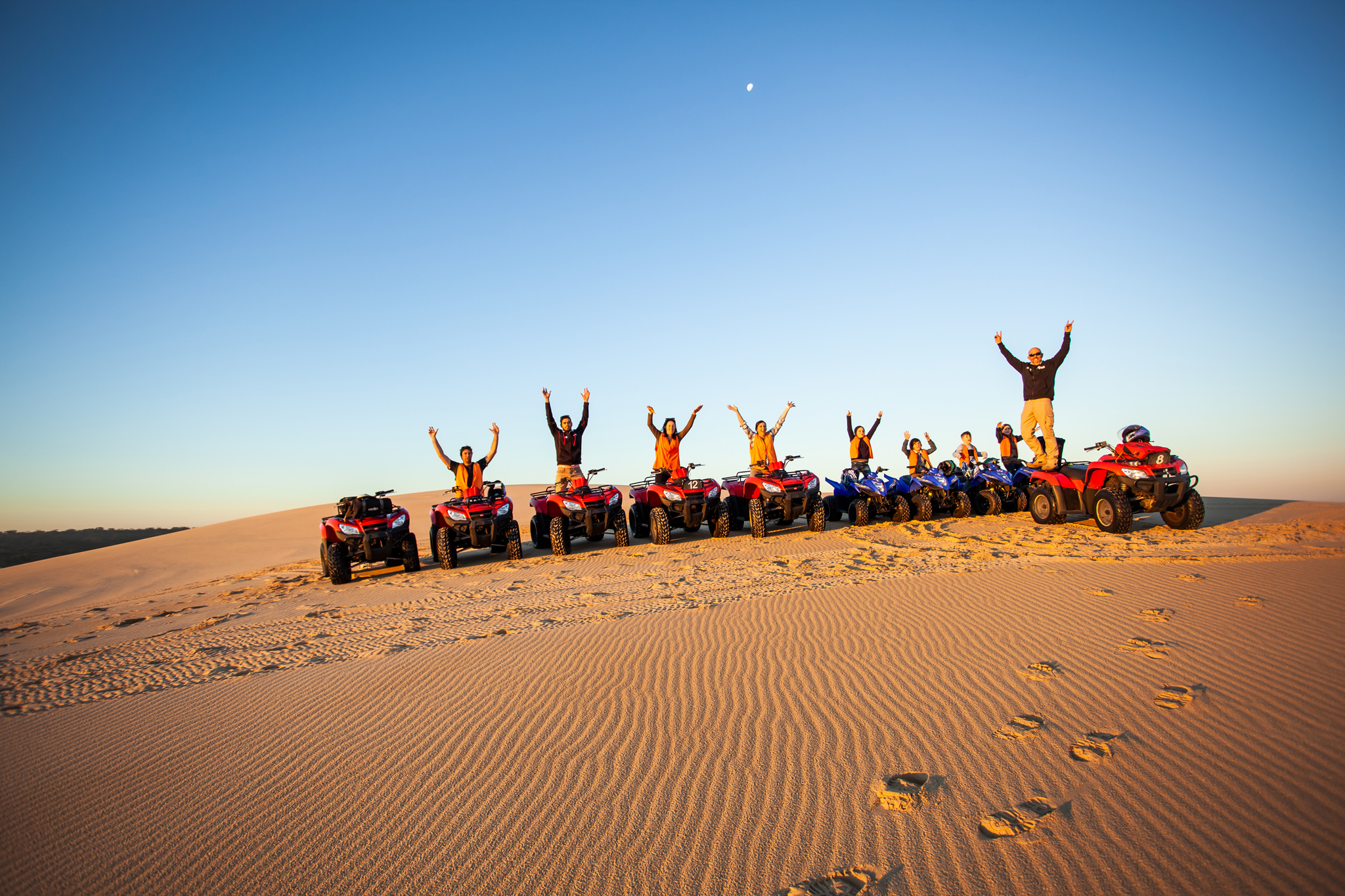
Sand Dune Adventures, Port Stephens, NSW © Tourism Australia
Case Study 2: Sand Dune Adventures, Port Stephens, NSW
There’s something about zooming down the largest shifting sand dunes in the Southern Hemisphere that makes you understand why Port Stephens, a two-hour drive north of Sydney/Warrane, is such a special place, and has been to the Worimi Aboriginal people for millennia. Here, Sand Dune Adventures’ adrenaline-pumping quad-bike tours take guests across Stockton Bight Sand Dunes in the Worimi Conservation Lands, covering some 4,200 hectares. This part of New South Wales is off-limits to most people – unless you’re with a Worimi guide and have good screaming lungs.
Sand Dune Adventures combines this thrilling quad-biking adventure with unique cultural preservation as you journey through bushland, in and around enormous sand dunes – you’ll learn about traditional Aboriginal food and history, as well as the dunes’ significance to Indigenous communities.
Sand Dune Adventures is owned and operated by the Worimi Local Aboriginal Land Council. Guides are all Worimi peoples; “Our tours are not about profit, they’re about people and sustaining culture,” says Andrew Smith, CEO of the Worimi Local Aboriginal Land Council. More than that, Sand Dune Adventures also funds the Murrook Cultural Centre, who’s purpose it to gather, sustain, protect and teach Aboriginal Culture to all people with an emphasis on Worimi culture.
“We’ve trained dozens of Aboriginal local people in our business,” says Andrew, noting that the centre now employs more than 45 staff. “We have a whole series of people who can be Aboriginal tour guides, they can ride the quad bikes, they know the local history, they’re trained in business administration and marketing. All the things required to run a successful business. We also do training in natural resource management… we get our elders and Traditional Owners and knowledge holders out on Country with some of our younger generation and start talking about respect… discovering a combined balance in the ecosystem between our traditional natural resource management values and scientific values.”
This forward-thinking centre is fundamental when it comes to gathering, sustaining, protecting and teaching Aboriginal culture, catering to everyone from school groups to community businesses, government groups and international travellers. It’s also used by the local Aboriginal community as a gathering place. Aboriginal staff teach various facets of culture, ranging from boomerangs to weapons and tools, art and dance, bush food and medicine, craft and more.
The Council also funds a ‘green team’, dedicated to the rehabilitation and regeneration of natural environments alongside urban-based environmental education. Part of this has been the establishment of a nursery at Murrook. “We also have a botanist, ecologist and archaeologist. We do seed collection and create stock supplies for our nursery to sustain native plants indigenous to this region. There are a lot of rehabilitation sites looking for native plants. We’re here with a long-term investment,” says Andrew.
And the return to the community? “Social Adventures Australia worked out that for every $1 we invest into our businesses, it’s giving around a $25 return to a family. That’s a massive investment into our people.”
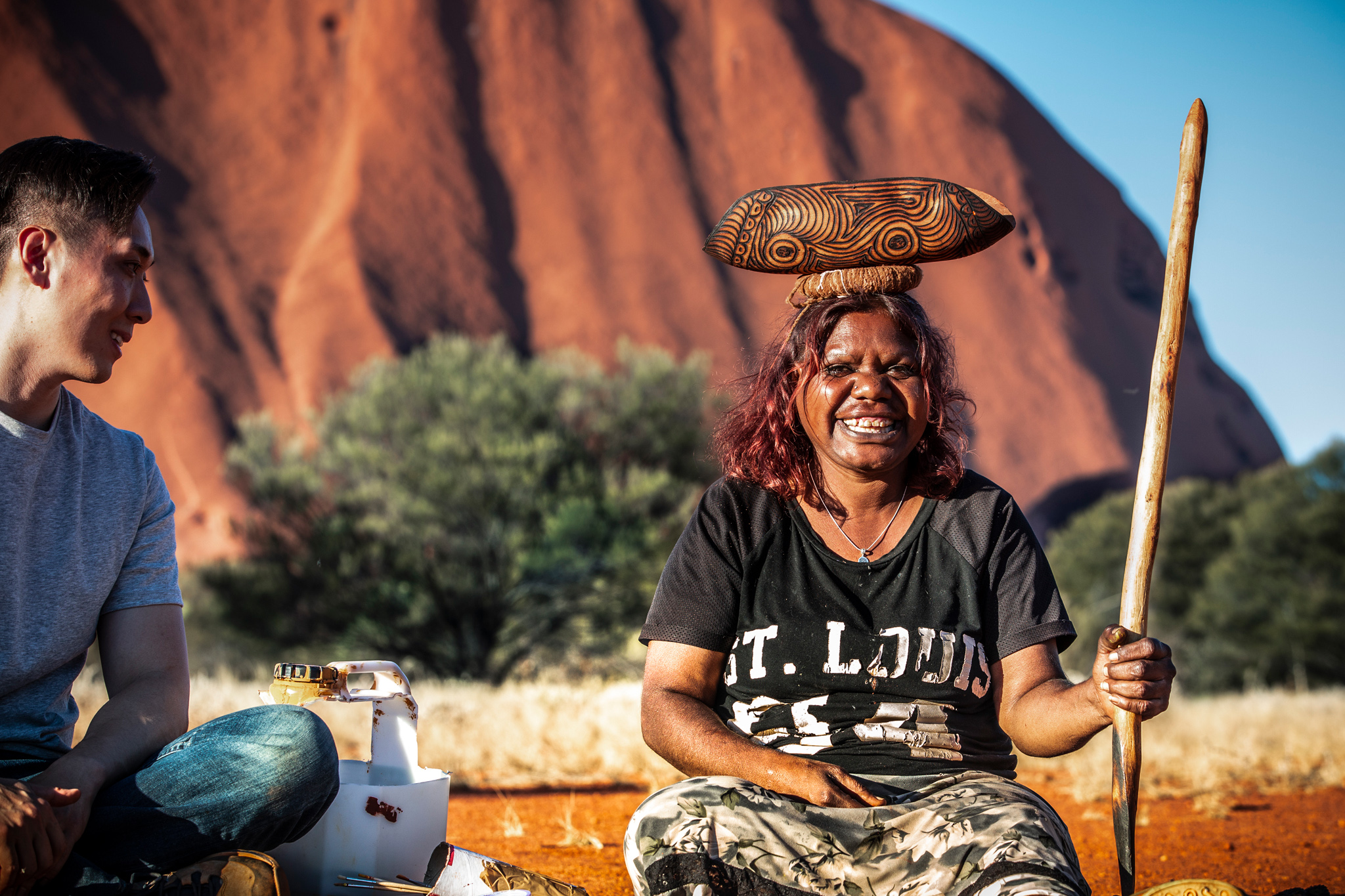
Sarah Dalby, Maruku Arts, Uluru, NT © Tourism Australia
Case study 3: Maruku Arts, Uluru, Northern Territory
In the Northern Territory’s heartland, near the UNESCO World Heritage Site of Uluru, Maruku Arts has been contributing to cultural sustainability for more than 35 years, helping to preserve Aboriginal practices like painting, drawing and carving through sharing these traditions with visitors and local employment.
Owned by Anangu (Aboriginal people from the Western and Central Deserts of Australia), Maruku offers the opportunity for guests to peruse an extensive range of paintings and distinctive punu (wooden carvings) by some 900 Anangu artists from 25 different communities, depicting Creation stories and places. Everything is ethically sourced, and sold.
Maruku not only sells art from its local community Mutitjulu at Uluru, but also sends staff to remote communities across the NPY regions (Pitjantjajatjarra, Yangkuntjarra, Ngaanyatjarra Lands) of the Northern Territory, South Australia and Western Australia, to purchase woodcarvings – it has been doing this since 1984. In 2019 alone, it invested $1.5 million dollars into 22 different communities across the central and western deserts, funding tour guides and environmental training, among other cultural facets.
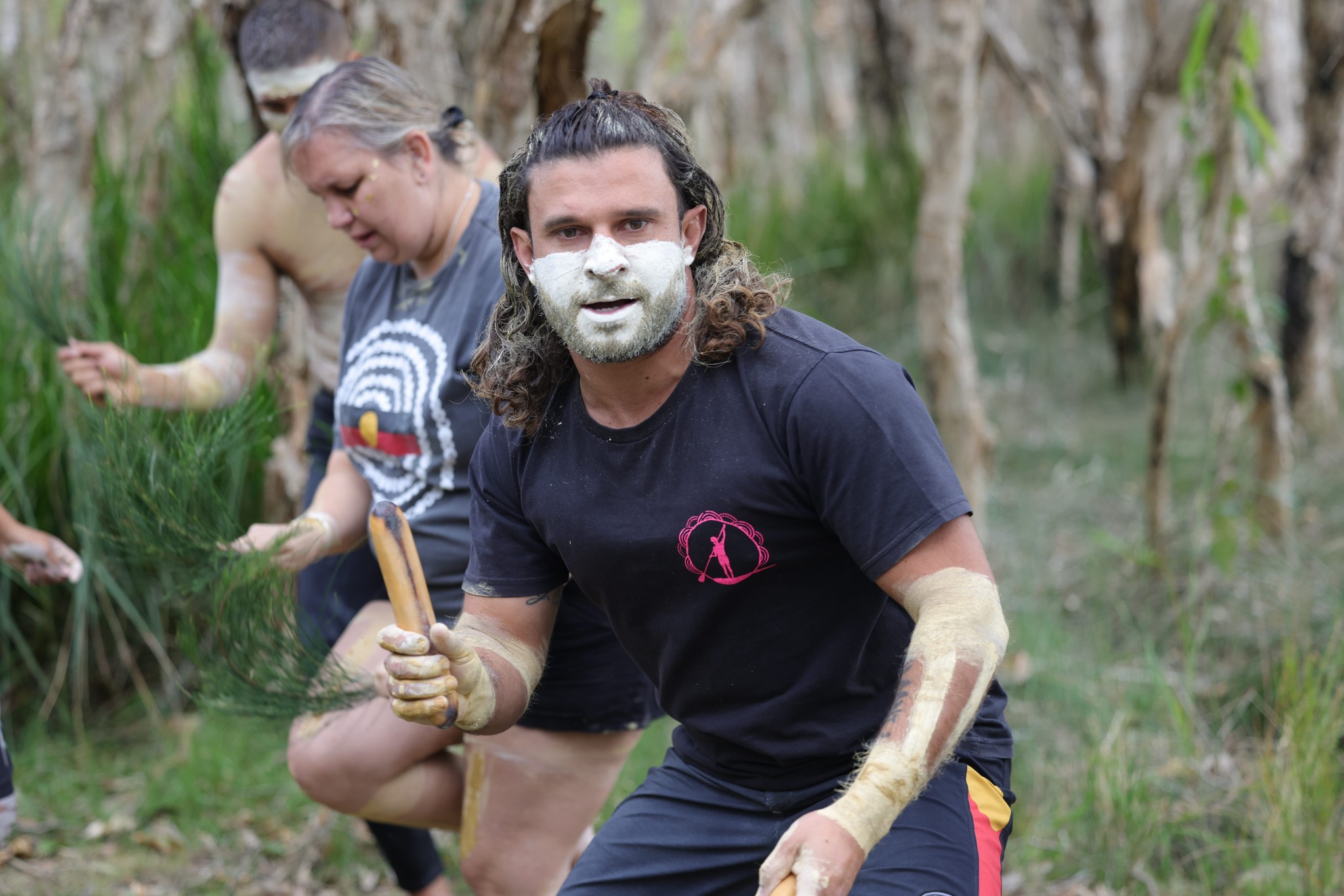
Clark Webb, Wajaana Yaam Adventure Tours © Tourism Australia
Case Study 4: Wajaana Yaam Adventure Tours, Coffs Harbour, NSW
The Gumbaynggirr people of the New South Wales Mid-North Coast have been paddling its waterways for tens of thousands of years, their ancestors using their knowledge of the tides to travel long distances in dugout canoes carved from hollowed tree trunks. Wajaana Yaam Adventure Tours continues this tradition via its stand-up paddleboarding tours, which are held on three idyllic waterways within the Solitary Islands Marine Park: the Coffs, Moonee and Red Rock Creeks. While paddling, you can admire the fish darting through crystal clear waters as your Aboriginal guide brings the Dreaming to life, and introduces you to some coastal bush tucker.
But more than being a scenic way to see the coast, Wajaana Yaam has its eye on the future – much of the company’s profits are reinvested from tourism activities back into the community. The company’s founder, Clark Webb, also established Bularri Muurlay Nyanggan Aboriginal Corporation (BMNAC) in 2010, with the overarching goal of sustaining local culture on Country. Over the last 14 years, the organisation has set up three learning centres, among other achievements.
Arguably the biggest achievement to date has been the 2022 opening of the Giingana Gumbaynggirr Freedom School, the first bilingual school in NSW of an Aboriginal Language. “The aim is to revitalise the Gumbaynggirr language, as currently it is listed as endangered, while also education on Aboriginal culture, purpose, traditions and identity,” says Clark. “It’s of the utmost importance that our children can attend a school that holds their culture and the land in the highest regard.”
In 2022, the school opened with 15 students; in 2023 there were 52 students and this year there are 85… with a waiting list. This is a 100 per cent Aboriginal student school.
The BMNAC is also planning to open the Yilaami Eco-Resort, with capacity to cater for 40 guests and including an on-site restaurant and facilities that connect people with an array of cultural tourism experiences. In addition to offering a minimum of 12 permanent jobs, profits from the Yilaami Eco-Resort will provide the main source of funding for the Gumbaynggirr Giingana Freedom School, says Clark.
Interviews can be arranged by request by emailing dae@tourism.australia.com
